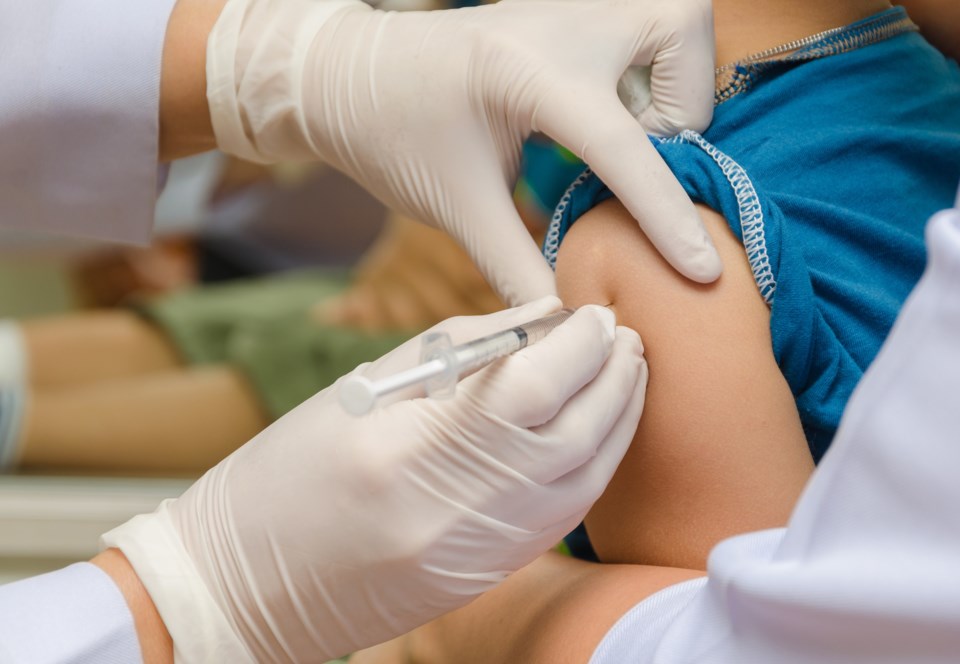York Region is expanding COVID-19 vaccination appointments to residents with highest and very high-risk chronic health conditions, as well as special education workers as of tomorrow, April 13.
Approximately 11,000 appointments will be opened to eligible residents as of 8:30 a.m. and are expected to book quickly, regional spokesperson Patrick Casey said.
Appointments are required for all COVID-19 vaccinations and can be made online at york.ca/COVID19Vaccine or by calling Access York at 1-877-464-9675.
Individuals, and one of their caregivers, with highest and very high-risk health conditions as identified in Ontario’s COVID-19 vaccination plan are eligible.
Special education staff who work in York Region are also eligible as of April 13, Casey said.
Due to limited vaccine supply, he said the eligible ages for vaccination in the five identified hotspots will be 45 to 54 (previously 45 to 59) for bookings April 14 to 17.
AstraZeneca vaccines are available for those aged 55 and older at York Region pharmacies, he added.
The clinic closures in Vaughan and Georgina announced earlier are still scheduled for tomorrow, Casey said.
"York Region is experiencing a serious reduction in vaccine due to the delays in the Moderna shipment for this week. Regretfully, this overall lack of COVID-19 vaccine will force York Region Public Health to close our COVID-19 vaccination clinics at Canada’s Wonderland drive-thru in the City of Vaughan and the Georgina Ice Palace in the Town of Georgina."
Capacity at the remaining three public health clinics in Markham, Richmond Hill and Vaughan is also being reduced until additional vaccine supply is received.
Here's who is eligible in York Region to book COVID-19 vaccines:
- York Region residents age 65+ (born in 1956 or earlier) in all clinics
- York Region residents age 60+ (born in 1961 or earlier) at the Cornell and Soccer City clinics
- York Region residents age 45-54 (previously 45-59) who live in five identified high priority communities
- Individuals (and one of their caregivers) with highest and very high risk health conditions*
- Special education staff who work in York Region
- Highest, very high and high priority health care workers as identified in the Ministry of Health’s guidance on Health Care Work Prioritization who work or live in York Region
- Staff, essential caregivers and any residents that have not yet received a first dose in long-term care homes, retirement homes and First Nations elder care homes
- Alternative level of care patients in hospitals who have a confirmed admission to a long-term care home, retirement home or other congregate care home for seniors
- Staff, residents and caregivers in retirement homes and other congregate care settings for seniors
- Indigenous adults and members of their households
- Adults with a chronic condition receiving home care services and who live in York Region (appropriate documentation will be required)
- Eligible adult recipients of chronic home care
- Faith leaders who live or work in York Region and provide end of life care, care of the deceased, care of those who are unwell or provides pastoral services in vulnerable settings.
Residents age 55+ are also able to book vaccine appointments at select York Region pharmacies.
In accordance with the Ministry of Health’s recent recommendations, transplant patients and some cancer patients are encouraged to get their second dose of the COVID-19 vaccine as close to the 21 to 28-day timeframe as possible.
*Individuals with highest risk conditions, according to Ontario's vaccination priorities are:
- Organ transplant recipients
- Hematopoietic stem cell transplant recipients
- People with neurological diseases in which respiratory function may be compromised (for example, motor neuron disease, myasthenia gravis, multiple sclerosis)
- Haematological malignancy diagnosed within the last year
- Kidney disease with estimated glomerular filtration rate (eGFR) under 30
- One essential caregiver for above individuals
High-risk conditions are:
- Obesity (BMI over 40)
- Other treatments causing immunosuppression (for example, chemotherapy, immunity-weakening medications)
- Intellectual or developmental disabilities (for example, Down Syndrome)
- One essential caregiver for those individuals who require regular and sustained assistance with personal care and/or activities of daily living

